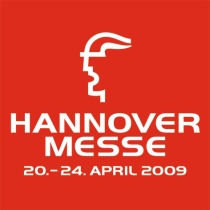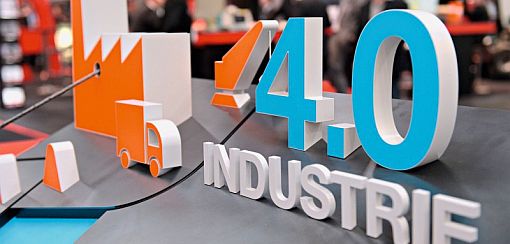29.01.2010 News: Hannover Messe 2010 (19-23 April): Vision 2050 at Research & Technology provides glimpses into the not-too-distant future
Following its successful debut in 2009, Vision 2050 will be in its second season at this year’s Research & Technology show at Hannover Messe (19 to 23 April). Leading research institutions and businesses will use the special display at the Innovations Market for Research & Development in Hall 2 as a platform to explore scenarios for the industrial world of tomorrow. In 2010, the focus of Vision 2050 will be on “individual and collective mobility.”
“This year’s event will extrapolate the current level of innovation to highlight the enormous potential benefits offered by future-oriented R&D,” says Dr. Thorsten Knoll, Project Leader at TU Berlin Servicegesellschaft mbH, Hannover Messe’s Vision 2050 project partner.
Exhibitors will be exploring a raft of fascinating questions: Will internal combustion engines still be around in 40 years? Will electrical car batteries be charged by induction energy as vehicles are driving on the carriageways? Or will the established propulsion technology be fuel cells running on hydrogen generated by wind, solar power or bio energy?
Will car-sharing be the dominant model, or will public transport be the only way to access city centers? Will freight transport by road be replaced with networks of underground ducts for distributing computer-controlled containers fitted with electric motors? Will accident rates have been dramatically reduced by equipping all vehicles on our roads with car-to-car communication systems?
Tough economic times tend to increase the demand for innovations from the R&D sector – not just for short-term innovations, but more particularly for greater visions which completely transcend the status quo.
This opens up a huge area for research initiatives of vital interest to the science and research sectors as well as to policymakers and industry in general. All these stakeholders want to catch a glimpse of what the future might hold, which is precisely what leading research laboratories can offer. A good example is the Fraunhofer Gesellschaft’s Berlin-based Heinrich-Hertz-Institute (HHI). HHI specializes in data transmission in all types of networks, including mobile communication systems.
One approach involves the transfer of high volumes of data, including transmission to moving objects, particularly cars and trains. “We envisage transmission rates of 400 megabits per second. That would transform a car into a totally viable workplace, and would also open up completely new options for traffic monitoring and control,” explains Wolfgang Schlaak, Business Development manager at HHI. This could well result in completely new types of navigation devices, with the ability to replicate human spatial perception much more closely than current systems are able to.
Watching football live on the train – in full HDTV image quality
Long-distance trains such as Germany’s ICE may look very different in 40 years’ time, doubling as mobile offices that provide an efficient work environment. “And those preferring to relax during the trip will be able to watch their favorite TV series or a Bundesliga football match on HDTV,” Schlaak promises.
These advances would, however, require the installation of a nationwide network of high-capacity fiber-optic cables and base stations.
Major synergies for Hannover Messe flagship tradeshows
The Vision 2050 event within Research & Technology highlights the importance of research across the entire spectrum of industry topics.
There will also be clear synergies from the mix of the various Hannover Messe flagship shows. For example, the mobility scenarios explored by research organizations in Hall 2 can be seen implemented in practice at another HANNOVER MESSE fair, MobiliTec, in Hall 27.
Data transmission in 2050
By the year 2050, data transmission will be able to create entirely new virtual worlds. At Vision 2050 the Heinrich-Hertz Institute will present an information terminal that simulates 3-D objects so they appear to hover in the air in front of the screen. These objects can be controlled, turned, expanded, merged and positioned with simple hand gestures – without any need for special glasses, data gloves or other accessories.
Completely new kinds of fixed and wireless data networks will be needed to cater for the vast data volumes involved in using such applications. Future concepts for the efficient, convenient and secure transmission of vastly increased data volumes will be a keynote theme at Research & Technology in April 2010.
Person-machine interactions
The Heinrich-Hertz Institute has a long tradition of developing technologies to refine and simplify person-machine interactions. The focus is on our natural interaction patterns as human beings. One of the important aspects is software control without any physical contact, based on perfectly normal gestures.
This will impact on mobility in two ways – firstly by making it more convenient and user-friendly, with more user information to enhance safety. The second impact will be simply to make mobility redundant in many cases, since virtual meetings will eliminate the need for physical meetings. “We may not quite be able to replicate the holodecks on Starship Enterprise, but we will certainly be a lot closer to realizing that sort of scenario by 2050,” Schlaak prophesizes.
Deutsche Messe
Messegelände I 30521 Hannover IGermany
T +49 (0) 51 18 90 I F +49 (0) 51 18 93 26 26
info@messe.de I www.messe.de


